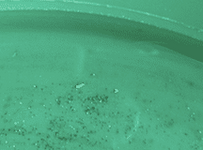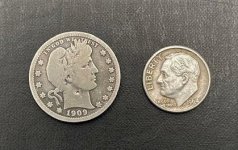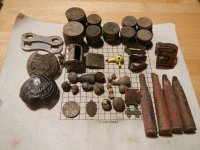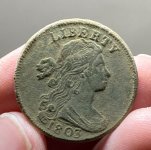Floristweb
Full Member
In my excitement to learn the ropes of finding gold... I decided to roast a little bit (1.5 TBLSP) of thouroughly searched black sand... I added 2 TBLSP of salt and a 1/2 cup of water and put it in a pan on our new gas grill.... After about 20 minutes I checked on it and the concoction had exploded all over the inside of the poor grill  ..... Apparently you're not supposed to use water... LOL
..... Apparently you're not supposed to use water... LOL  I took the pan out, dunked it in ice water and panned what remained...I found a few small pieces of gold.. woo-hoo
I took the pan out, dunked it in ice water and panned what remained...I found a few small pieces of gold.. woo-hoo Maybe I better read up on roasting black sands... Don't worry, you aren't laughing at me, you're laughing with me....
Maybe I better read up on roasting black sands... Don't worry, you aren't laughing at me, you're laughing with me....

 ..... Apparently you're not supposed to use water... LOL
..... Apparently you're not supposed to use water... LOL  I took the pan out, dunked it in ice water and panned what remained...I found a few small pieces of gold.. woo-hoo
I took the pan out, dunked it in ice water and panned what remained...I found a few small pieces of gold.. woo-hoo Maybe I better read up on roasting black sands... Don't worry, you aren't laughing at me, you're laughing with me....
Maybe I better read up on roasting black sands... Don't worry, you aren't laughing at me, you're laughing with me....
Upvote
0






